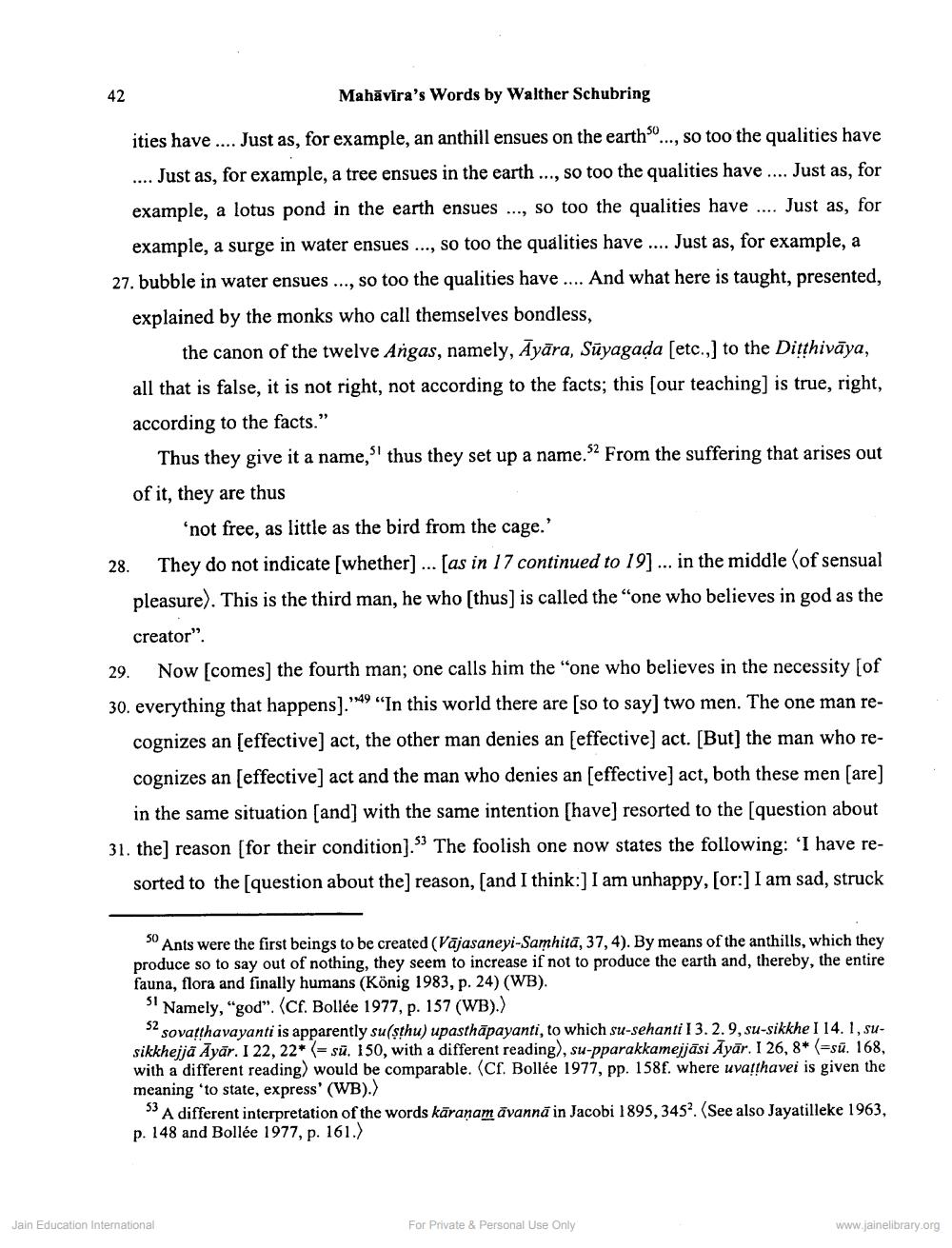________________
Mahavira's Words by Walther Schubring
ities have.... Just as, for example, an anthill ensues on the earth50..., so too the qualities have
Just as, for example, a tree ensues in the earth..., so too the qualities have.... Just as, for example, a lotus pond in the earth ensues, so too the qualities have
example, a surge in water ensues..., so too the qualities have .... Just as, for example, a 27. bubble in water ensues..., so too the qualities have .... And what here is taught, presented, explained by the monks who call themselves bondless,
the canon of the twelve Angas, namely, Ayära, Suyagada [etc.,] to the Ditthivaya, all that is false, it is not right, not according to the facts; this [our teaching] is true, right, according to the facts."
52
Thus they give it a name, thus they set up a name. From the suffering that arises out of it, they are thus
'not free, as little as the bird from the cage."
42
28.
They do not indicate [whether]... [as in 17 continued to 19]... in the middle (of sensual pleasure). This is the third man, he who [thus] is called the "one who believes in god as the
creator".
Now [comes] the fourth man; one calls him the "one who believes in the necessity [of 30. everything that happens]."49 "In this world there are [so to say] two men. The one man recognizes an [effective] act, the other man denies an [effective] act. [But] the man who recognizes an [effective] act and the man who denies an [effective] act, both these men [are] in the same situation [and] with the same intention [have] resorted to the [question about 31. the] reason [for their condition]. The foolish one now states the following: 'I have resorted to the [question about the] reason, [and I think:] I am unhappy, [or:] I am sad, struck
50 Ants were the first beings to be created (Vājasaneyi-Samhita, 37, 4). By means of the anthills, which they produce so to say out of nothing, they seem to increase if not to produce the earth and, thereby, the entire fauna, flora and finally humans (König 1983, p. 24) (WB).
Namely, "god". (Cf. Bollée 1977, p. 157 (WB).)
52 sovatṭhavayanti is apparently su(sthu) upasthapayanti, to which su-sehanti 13. 2.9, su-sikkhe I 14. 1, susikkhejja Ayar. 122, 22 (s. 150, with a different reading), su-pparakkamejjäsi Äyär. I 26, 8 (s. 168, with a different reading) would be comparable. (Cf. Bollée 1977, pp. 158f. where uvatthavei is given the meaning 'to state, express' (WB).)
53 A different interpretation of the words kāraṇam āvannā in Jacobi 1895, 3452. (See also Jayatilleke 1963, p. 148 and Bollée 1977, p. 161.)
Jain Education International
For Private & Personal Use Only
www.jainelibrary.org




